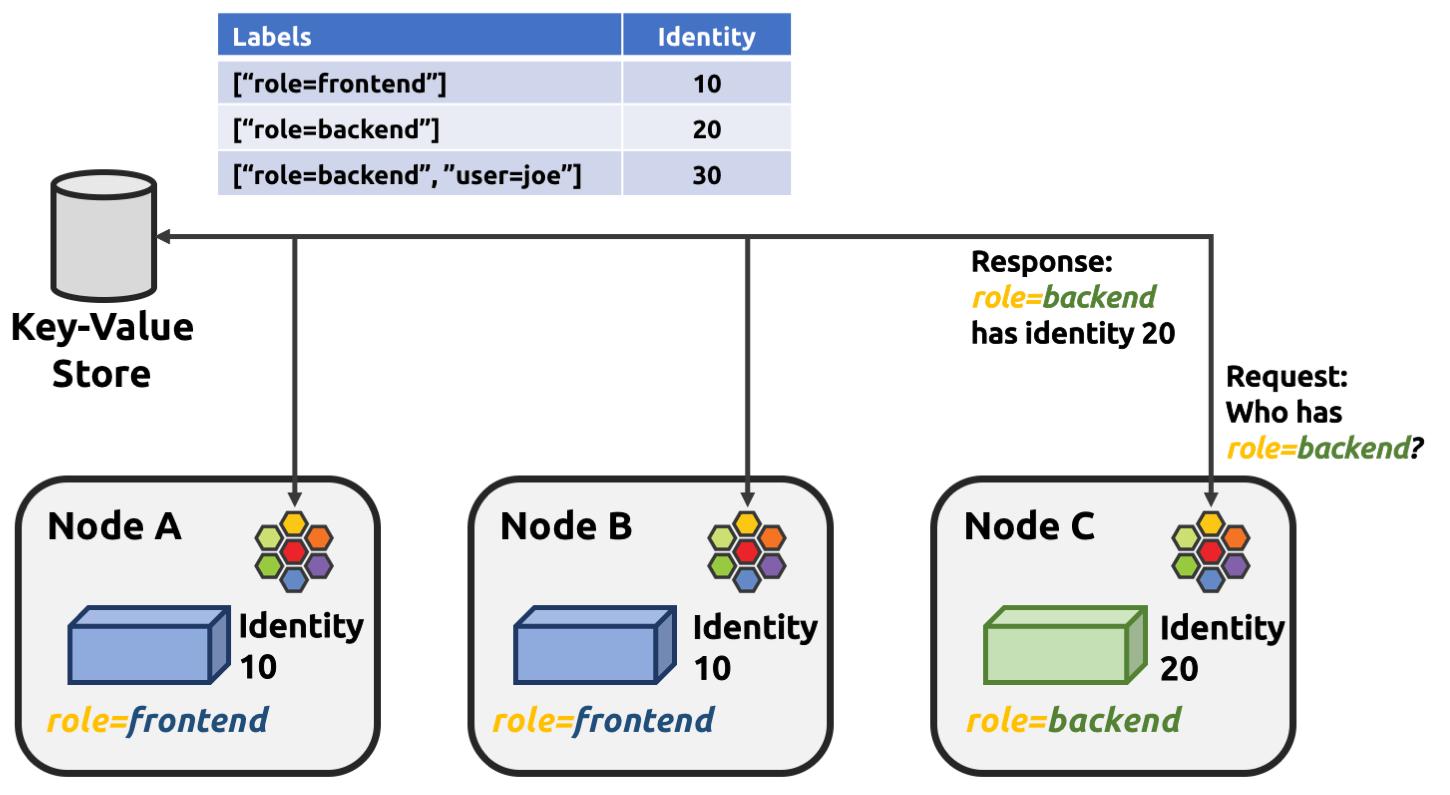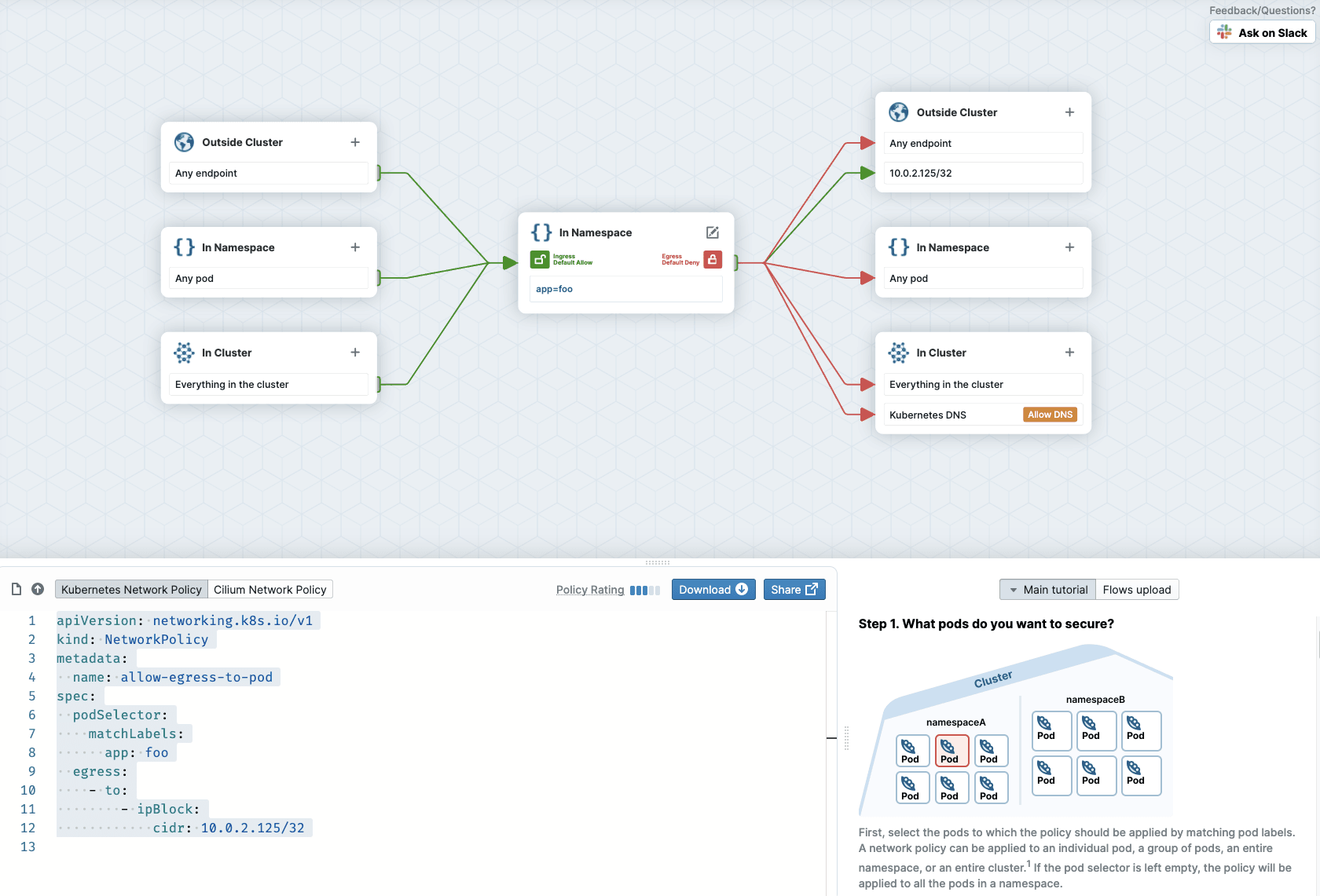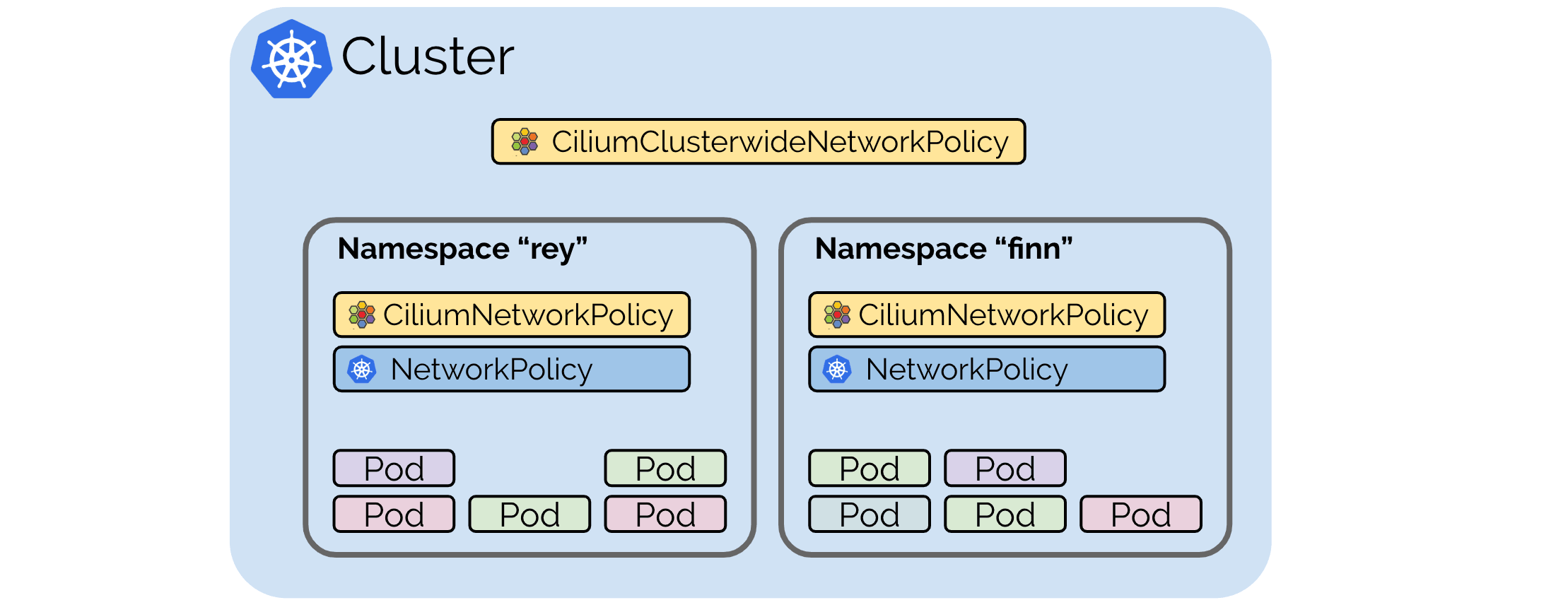Join the Cilium Slack
Cilium is an open source project that anyone in the community can use, improve, and enjoy. We'd love you to join us on Slack! Find out what's happening and get involved.
Join the SlackKubernetes network policies provide an application-centric construct for defining security policies at L3/L4 level. One of the primary challenges is how to effectively enforce security policies when traditional IP rules don't apply. Modern systems often churn IPs dynamically making it difficult to rely entirely on TCP/UDP ports and IP addresses for scaling security policies.

Cilium implements Kubernetes Network Policies for L3/L4 level and extends with L7 policies for fine grained API-level security for common protocols such as HTTP, Kafka, gRPC, etc. For example, the endpoint with label role=frontend can only perform the REST API call GET /userdata/[0-9]+, all other API interactions with role=backend are restricted.
Cilium decouples security from network addressing using workload identity derived from labels and metadata, allowing for more flexible and efficient scaling without constant security rule updates.

Cilium provides a simple and intuitive network policy editor UI easing the cognitive overhead of writing network policies. It can often be painful to get the YAML syntax and formatting right when implementing network policies. There are many subtleties in the behavior of the network policy specification (e.g. default allow/deny, namespacing, wildcarding, rules combination, etc) that can result in misconfiguration.

Cluster Mesh, Cilium's multi-cluster implementation features Network policy enforcement spanning multiple clusters. The same policy enforcement you are familiar with from a single cluster simply expands and works across multiple clusters.
Cilium also features cluster wide policies which are non-namespaced and cluster scoped via the extended CiliumClusterwideNetworkPolicy CRD. Using cluster-wide policies, administrators can enforce consistent policies across all namespaces, simplifying network management.

Utmost achieved Zero Trust Networking by replacing their existing CNI with Cilium to address networking, security, and visibility for container workloads. Utmost processes 1207 flows per second, each validated against a multitude of network policies to approve or deny access.
Read The Case StudyClickHouse turned to Cilium as their preferred networking solution to take advantage of eBPF performance and simplify the process of isolating customers from each other. Cilium enabled them to create dedicated CiliumNetworkPolicies for each customer’s Kubernetes namespace to control access to specific resources, even if a customer manages to break into their Kubernetes pods.
Read The Case StudyCilium is an open source project that anyone in the community can use, improve, and enjoy. We'd love you to join us on Slack! Find out what's happening and get involved.
Join the SlackCilium has extensive documentation that covers its features and use cases. The docs also features tutorials for common user stories.
Read the DocsGet help with Cilium through Slack, Github, training, support, and FAQs. The community can also help you tell or promote your story around Cilium.
Get Help